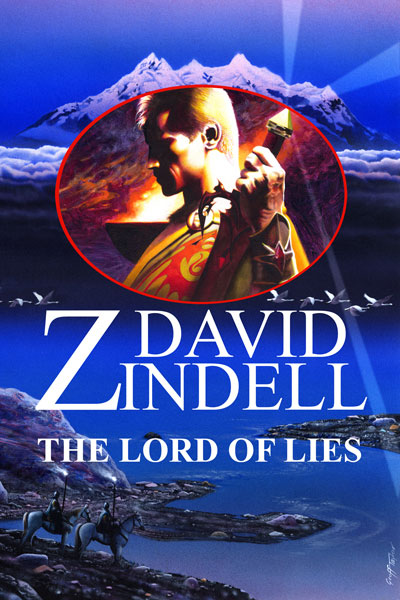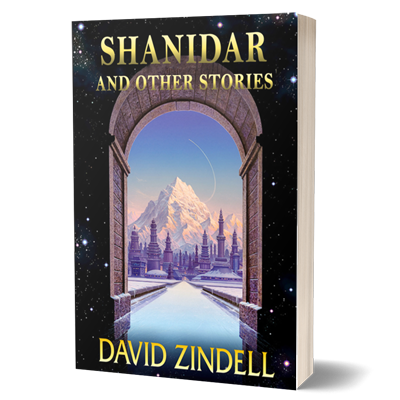 The people of Ea call Morjin the “Lord of Lies.” This once-proud Elijin, who originally came to Ea to accomplish the brightest of purposes, has fallen into the darkest of debasement. One reason for his disgrace is that he has allowed himself to lie.
The people of Ea call Morjin the “Lord of Lies.” This once-proud Elijin, who originally came to Ea to accomplish the brightest of purposes, has fallen into the darkest of debasement. One reason for his disgrace is that he has allowed himself to lie.
Who has not, hundreds of times in hundreds of ways, lied? We lie about big things, such as a husband concocting a fanciful story to deceive his wife into believing that he has not cheated on her just after he has spent the night with another woman. We lie about little things: we say how much we’ve enjoyed a mediocre meal that a friend has cooked for us or tell that her weird new hairdo makes her look pretty. White lies, we call them. In the second book of my fantasy series, I wanted to speak about big, bad, black lies of the worst kind: the lies we tell to ourselves.
Valashu Elahad, noble prince of Mesh, like most of us does not want to think of himself as a liar. His people, the Valari, hate lies and liars. Three things a Valari warrior is taught: to wield a sword, to follow the Law of the One, and to tell the truth.
What, though, is the truth? Do we always know it when we see it or hear it? I sometimes think of an internet dating site I once used, Match.com. I suspect that many people shave years off their profiles, for in our culture we usually value youth over maturity. Despite the obvious utility of seeming younger, most of us would feel uncomfortable lowering our ages in this way; we recognize that as an obvious if rather small lie. But how about a woman who applies expensive cosmetics to bleach out her age spots, gets Botox injections to smooth out her wrinkles, and dyes her gray hair a dark brown? Doesn’t she try to appear to potential mates as a younger woman? Isn’t that a kind of deception? Yet how many of us would call it a lie?
Through the power of the illusions that Morjin casts into others’ minds, he appears to them as an angelic being, beautiful in form and face. He looks well-muscled and tanned, like a surfer at the beach. His golden eyes seem to beam out compassion. Valashu Elahad, though, comes to see Morjin as he really is:
“ . . . terrible and ghastly to behold. His eyes were not golden at all. They were a sickly red, with pigments of ocher and iron settled into the irises, while the whites were bloodshot as if he was never able to sleep. His pale, mottled skin was likewise disfigured with a webwork of broken blood vessels. There were pouches under his eyes, and much of his limp, grayish hair had fallen out. In the skin that drooped from his neck and in his predatory countenance was a ravenous hunger for vitality and lost love.”
Morjin, of course, consciously deceives people in this way because it helps him gain power over them. He doesn’t realize how much he subconsciously wants to believe his own lie – because he desperately needs to see himself as full of splendor. Don’t we all secretly feel young and beautiful inside? Morjin won’t admit that his illusions harm himself almost as much as they wreak havoc upon the world.
Why is a self-lie the worst kind of deceit? Because if we can fool ourselves that foul is fair and black is white, we can do evil while believing it is good. People always do what they conceive as good with far greater fervency than they do evil. In fact, in real life, only madmen revel in working evil.
Adolph Hitler has been called such, but I don’t think he was. He sent the armies of his Wehrmacht into the east to exterminate millions of Poles and Russians; he wanted to create lebensraum, so that his Germans would have more room to live and bear more Germans. So what if other people who stood in his way had to be bombed or starved or machine-gunned or gassed as if they were rats? He saw the mass murder of others as good for his people – as in a cruel way it would have been if he had succeeded. In another way, of course, it would have been terrible for the Germans to have won the war, for we cannot harm others without in some way harming ourselves. The lie that Hitler told himself was that good Germans could commit unspeakable crimes and still remain good.
Valashu Elahad, like most of us, wants to believe in his own goodness. He has seen Morjin act as evilly as a human being can. Fantasy, more than most literature, often makes this opposition of good vs. evil. In playing out myth and laying bare the primal, it showcases true heroes fighting a sort of eternal Manichean battle of light vs. dark. We desperately want to know which is which. Why do we long for this clarity? A better question might be: how can we not? For we are moral beings wanting to know how to act in the world.
But how do we know wrong from right? Many of us rely on moral or religious laws, such as those set down in the Koran or the Bible. Val’s people try to live their lives according to the fierce but noble code of the Valari warrior. So does Val. This code, however, as no code ever could, cannot cover all the complexities of Val’s world. Specifically, it cannot tell Val the answer to a burning question that will determine both his fate and that of Ea: is Val the Maitreya, the Shining One who can wield the Lightstone for its highest purpose?
Many signs point toward Val as this great-souled being. Many times he is tempted to claim the golden cup for his own. Why does he not know his destiny? Why does he not know who he really is? How do people, even chosen people, know such things?
We sometimes speak of our conscience. And our conscience sometimes speaks itself, like a little voice in our heads, telling us right from wrong. I have often heard that voice. Who hasn’t? And usually the right that it distinguishes from the wrong is a moral question, such as: should we execute – kill – murderers for their crime of killing others?
I have also heard another voice, a deeper voice. I call it the voice of my soul. It always seems to speak deep truths that I could not possibly know myself, not just wrong and right, in a moral sense, but right action from wrong action, as if some ultra aware part of me could somehow see how all things should naturally unfold. This sense – it is really more of a force – goes beyond simple good and evil, in the same way that the universe does. Or rather, it seeks to accomplish a higher purpose beyond the simple moral good: that which furthers life in its evolution toward the divine.
From where, though, could such a sense arise? How could it develop? I believe that the individual soul partakes of the soul of the universe, which knows everything that can be known. It sometimes speaks to us in a voice that cracks out like thunder, as it did to Moses on the mountaintop when he beheld the burning bush and received his divine summons to lead the ancient Israelites out of bondage in Egypt. Sometimes we can hear that voice out in the wilds of the world, in the howling of wolves across a frozen lake or in the ocean’s long, dark, eternal roar. We can hear it in the wind – in that breath of pure spirit that blows always through our hearts. That voice always knows. In a way, it is pure knowingness, in itself. And it never stops whispering inside.
Too often we don’t hear it, and if we do, we don’t heed it. We have a hundred reasons not to. In this, Valashu Elahad is no different from anyone else. He, a very good man, has a very strong urge to do good. He brings a great power toward this purpose. When he refuses to listen to the voice of his soul, however, his purpose goes wrong. And so he brings a great wrong onto his people, onto his family, onto himself.
The Lightstone had its dark moments, but in Lord Of Lies things turn very dark indeed. This is a revenge story: Morjin takes a terrible vengeance on Val for his “crime” of defying him. The resulting agony is almost more than Val can bear. It carries him one step further along the path toward realizing that he could become like Morjin – that he and Morjin, in some deep way, are one and the same. Val turns away from that truth, too. He would almost rather die than acknowledge the whispering voice inside himself.
Val could not survive his battles, inside and out, without the love of his companions. He especially relies on Kane, who has endured ages upon ages of unfathomable suffering. Kane, like Morjin, has fallen from the order of the Elijin – only not so far. Kane shuts out his soul’s beautiful voice with a savage will to silence it: he denies not only his highest purpose but his true name. He tells Val that there are no evil men, only evil deeds. He believes that there is no help for fighting evil through its own evil means.
And yet Kane – like Val – wants to bring about a higher good. He wills it to be with a blazing will almost as fierce and fiery as the will of the world itself. And so despite himself, almost, he strives again and again to do good. In him, more than in any character I have ever created, two forces oppose each other in a war unto the death.
And as it has been for him for millennia, so it becomes for Val. As Kane tells him at the end of the book: “Two wolves fight within your heart now. One wolf is vengeful and howls with hate. The other wolf is compassionate and wise.”
Which wolf will win this bitter fight? Val asks. And the answer, from the immortal Elijin who knows too well: “The one you feed.”
That is a truth that not even the Lord of Lies himself can deny.
Purchasing Links
Lord of Lies can be purchased at the following online stores.
Print version: Amazon
Ebook: Amazon • Barnes and Noble • Kobo • Apple Store • Smashwords

